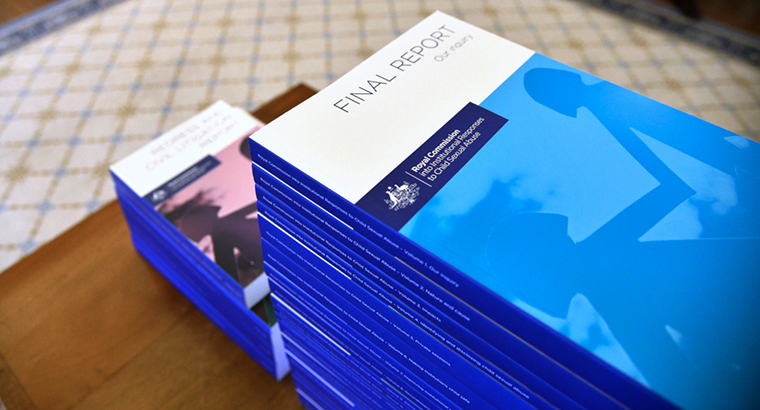News
New office for child safety in wake of Royal Commission into child sexual abuse
The Federal Government has announced it will establish a National Office for Child Safety in response to the Royal Commission into Institutional Responses to Child Sexual Abuse.
 Prime Minister Malcolm Turnbull said the Government will ‘continue to work in partnership with states and territories to ensure children are safe from abuse in institutional care’. (Image: Lukas Coch)
Prime Minister Malcolm Turnbull said the Government will ‘continue to work in partnership with states and territories to ensure children are safe from abuse in institutional care’. (Image: Lukas Coch)
The new National Office for Child Safety, which will open on 1 July, will be created within the Department of Social Services.
According to the Federal Government, the office will work across government and sectors to develop and implement policies and strategies to enhance children’s safety and prevent future harm.
All Australian states and territories have signed on to the National Redress Scheme, described as ‘one of the key recommendations’ of the Royal Commission into Institutional Responses to Child Sexual Abuse (Royal Commission).
‘The response to the Royal Commission is wide-ranging and extensive. It aims to ensure that children are safe when in the care of an institution,’ the Government said in a statement. ‘The survivors have told their stories and we honour their bravery.’
The Federal Government will also issue a formal apology to survivors of child sexual abuse on 22 October.
The Government response to the Royal Commission has been well-received by the Federal Opposition.
‘We welcome the Commonwealth Government’s commitment to establish a National Office for Child Safety,’ the Opposition said. ‘This was an important recommendation of the Royal Commission designed to ensure that the abuse endured by survivors never happens again.’
 The Royal Commission into Institutional Responses to Child Sexual Abuse saw more than 8000 people share their stories in private sessions. (Image: Jeremy Piper/AP)
The Royal Commission into Institutional Responses to Child Sexual Abuse saw more than 8000 people share their stories in private sessions. (Image: Jeremy Piper/AP)
In the context of the Royal Commission, GP Dr Tim Senior believes it is important for GPs to be aware of the vital role in working with people who have experienced abuse.
‘GPs play a key role in responding to adult survivors,’ Dr Senior recently wrote for newsGP.
‘For GPs, it is important to remember that many adults who have experienced childhood abuse may appear unaffected. However, childhood abuse can adversely impact an adult’s functioning and affect their interpersonal relationships, parenting capacity, family functioning and mental health, which are often the cause of presentations to general practice.
‘For this reason, GPs should be alert to the possibility that adults with whom they speak may have experienced abuse or other adverse childhood events.
‘GPs are often highly trusted professionals, seeing people at vulnerable times in their life. It is not unusual that a person’s first disclosure of abuse – to anyone – is to their GP.’
Dr Senior said GPs’ responses to intervention can be guided by the ‘Nine steps to intervention – the 9 Rs’ in the RACGP’s Abuse and violence: Working with our patients in general practice (White Book).
‘Survivors commonly experience a range of mental health issues, and mental health services are a key form of support they access,’ Dr Senior wrote. ‘In responding to these issues, the focus should be not only on alleviation of symptoms and making a mental health diagnosis, but also supporting survivors’ broader health and wellbeing and helping them to address their underlying trauma.’
Resources
RACGP:
The Royal Commission into Institutional Responses to Child Sexual Abuse:
1800RESPECT:
- Daisy App – designed to support patients and includes tips on the safe use of phones in an abusive situation
abuse-and-violence Royal-Commission Royal-Commission-into-Institutional-Responses-to-Child-Sexual-Abuse white-book
newsGP weekly poll
Are you interested in prescribing ADHD medication?